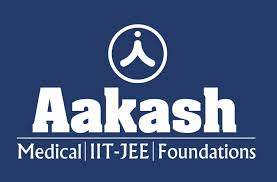S. Barman Roy, J.@mdashBy this revision petition, the Petitioner seeks to challenge the order dated 8.12.1993 passed by the learned Sessions Judge, West Tripura Agartala in Sessions Case No, 112 (W.T./A) of 1993 under Sections 490A/304B IPC.
2. The petition is being disposed of at motion stage.
3. Case of the Petitioner is that the Petitioner is an accused in the aforesaid case facing trial before the learned Sessions Judge. P.W. 4 Smti Dipali Das is the mother of the petitioner/accused. P.W. 4 Smti Dipali Das is merely a seizure witness. Her statement was not recorded by the Investigating Officer u/s 161 Code of Criminal procedure. She was merely called upon as a prosecution witness to prove the seizure list. In this respect she gave her evidence as P.W. 4 in course of her examination in chief. During cross-examination, the learned Sessions Judge disallowed a number of questions put to her by the Cross-examining counsel of the Petitioner on the ground that the P.W. 4 is merely a seizure witness and that she was not examined by the Investigating Officer u/s 161 Code of Criminal Procedure. It would be convenient to quote the entire cross-examination of PW 4.
The deceased Rina Deb was living in my house with me, I was in separate mess.
Q. Whether there was a baithak in your house relating to torture on Rina Deb?
This question-is disallowed on the ground that the witness is a seizure list witness and there is no statement recorded u/s 161 Code of Criminal Procedure.
Q. Do you know anything about the assault on Rina Deb by accused?
Disallowed on the same ground.
Q. Is it a fact that mother of Rina Deb stated about the torture of Rina Deb to you.
Disallowed on the same ground.
Q. Whether any conversation can be heard from my house to the house situated by the side of my house?
Disallowed on the same ground.
Q. Whether statement of mother of Rina Deb that she died due to torture of accused?
Disallowed on the same ground.
4. I have heard Mr. B.B. Deb, learned Counsel for the Petitioner and Mr. S. Das, learned Public Prosecutor.
5. The order of the learned Sessions Judge is manifestly arbitrary and illegal. Even learned Public Prosecutor was unable to support such arbitrary attitude adopted by the learned Sessions Judge in course of cross-examination of PW4 and, accordingly, learned Public Prosecutor was fair enough to concede that such an order cannot be sustained and should be quashed with appropriate direction to the learned trial Court.
6. In this connection I may refer the decision of Calcutta High Court in Bishnu Murmoo v. Radhanath Patra ILR (1951) Cal 87. In this case it has been held that the object and scope of cross-examination is two-fold to weaken to qualify or destroy the case of the opponent; and to establish the party''s own case by means of his opponent''s witnesses. It is not confined to matters proved in chief; the slightest direct examination, even for formal proof, opens up the whole of the cross-examiner''s case. In cross-examining a witness, the cross-examining lawyer not only tries to bring out contradictions in the evidence given in examination-in-chief, but he also tries to build up his case by establishing new facts. In fact, the cross-examiner need not be confined to the facts which the witness testify in his examination in chief. This is permitted by the generality of Section 143 of the Indian Evidence Act. Section 143 permits leading questions to be put in cross-examination. This is in accordance with the English practice by which the cross-examination is not limited to the matters upon which the witness has already been examined-in chief, but extends to the whole case, and therefore, if a plaintiff calls a witness to prove a single, even the simplest-fact connected with the case, the defendant is at liberty to cross-examine him on every issue, any by putting leading questions, to establish, if he can, his entire defence. Same practice has been adopted in India under the provisions of Indian Evidence Act. Only question is that the cross-examining counsel must be confined to questions relevant, to the case.
If a certain question is relevant, a cross-examiner cannot be prevented from asking such questions.
7. Of course it is true, a witness cannot be examined as to any co-lateral independent fact irrelevant to the matter in issue save this, a Court has no authority to interfere with the liberty of the cross-examining counsel to put any question he likes to the witness of the opponent. Too much interference with the liberty/right of the cross-examining counsel to put any relevant question to the opponent''s witness, provided it is relevant, has to be deprecated. Undue interference by the trial court in course of the cross-examination amounts to denial of fair trial and hearing. In the instant case, I have no hesitation in my mind that the learned trial court was most arbitrary and unauthorised is disallowing the questions put to PW 4 by the cross-examining counsel of the petitioner. In a sense it amounted to denial of fait trial and hearing. It has left an indelible stamp of arbitrarinesss. Judge of the trial court is required to sec only relevancy and admissibility. Save this he should not normally interfere with the cross-examining counsel in course of the cross-examination of the opponent''s witnesses. A cross-examining counsel has ample discretion in the conduct of cases of which he is in charge and the court cannot fetter his discretion by making frequent interference in course of the cross-examination or by disallowing the questions put to the opponent''s witnesses by the cross-examining counsel, provided such questions are relevant and admissible.
8. In these circumstances, I am constrained to hold that the learned Sessions Judge was not only wrong but has also acted arbitrarily and has thrown to the wind fundamental cannons of criminal jurisprudence. Therefore, this petition has to be allowed and accordingly I allow the petition and direct the learned trial court to allow the cross-examining counsel of the Petitioner to put all relevant questions and including questions put to PW4 and record answers there on in the deposition sheet.
The petition is accordingly disposed of.

